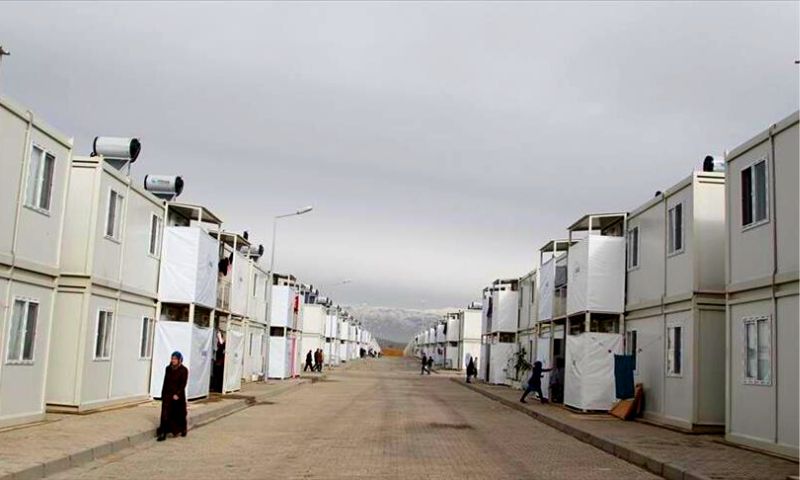The Turkish authorities are actively conducting a security campaign, resulting in the deportation of refugees to Syria from various cities and states, including those holding the “temporary protection” (Kimlik) card. These deportations occur abruptly, with minimal information provided, and are primarily focused on Istanbul, which houses the largest Syrian refugee population in Turkey.
Syrians who fail to provide their identity documents find themselves transferred to detention camps, often without prior notice or knowledge of their destination, as reported by deported refugees interviewed by Enab Baladi.
Arab League Comments on Ministerial Committee Reports on Syria
Within these makeshift camps, constructed with flimsy materials that amplify the scorching sun’s intensity, Syrians trapped in this dire situation seek any glimmer of hope from those overseeing the detention centers. These centers were formerly used as refugee camps for Syrians in Turkey.
Enab Baladi reached out to a group of Syrians who were deported to various camps, including the “Maraş” camp in Kahramanmaraş, approximately 150 kilometres from the Syrian border, the “Albılı” camp in Kilis, and the “Ozli” detention center in Gaziantep. These deportees reside in clusters within these camps, housed in cramped “caravans.”
The Uncertainty of Deportation
“I have been detained in the camp for over eight months. No one has informed us when this ordeal will end, and the camp director keeps threatening to either detain us here indefinitely or send us back to Syria,” revealed Ramadan Omar, a 26-year-old Syrian refugee from Jarabulus. He has spent more than eight months in the Kilis “Albeli” camp, awaiting a resolution to his predicament.
According to Ramadan’s account to Enab Baladi, around 21 individuals are confined in the camp, with most of them facing legal proceedings and travel restrictions. Some have attempted to hire lawyers to facilitate their release, but their efforts have been in vain.
Ramadan explained that the camp director frequently appeals to Ankara to request the deportation of detainees to Syria, only to face repeated rejection due to legal impediments that prevent them from leaving Turkey. Despite their repeated signing of papers for voluntary return, the situation remains stagnant.
With no apparent avenue for leaving the detention centers, many detainees have adapted to the monotonous routines of camp life. Some document their experiences through video clips shared on the “Tik Tok” application.
Austerity and Hygiene Issues
“There is a severe shortage of water throughout the day, typically only available for an hour or two. The caravans are far from clean, and insects infest the surroundings,” Ramadan lamented, describing the dire conditions in the Kilis “Albeli” camp, where he was relocated with a group of fellow Syrians.
Abdullah Abu Arab, a Syrian refugee from Aleppo, shared a similar account with Enab Baladi. He mentioned that camp staff conduct headcounts at 7 AM and 7 PM daily to ensure everyone’s presence.
Abdullah stated that anyone seeking clarification about their situation, inquiring about their fate, requesting medical attention for health issues, or asking to see a doctor is met with the same phrase from staff, “Whoever dislikes the camp should return to Syria.”
Regarding the meals provided in the camp, Abdullah described them as meagre and barely satisfying hunger due to their small portions. Breakfast, in particular, is considered not worth waking up early for. However, some residents are compelled to do so because they lack resources outside the camp and have no one to lend them money.
Abdullah pointed out that the officials’ treatment of detainees, the absence of adequate medical care, and the denial of access to doctors or hospitals, coupled with the failure to provide necessary funds for their basic needs, demonstrate a lack of concern for their well-being. These conditions have led some individuals to sign voluntary return papers, although such attempts prove futile due to the travel bans imposed as a result of ongoing legal proceedings in Turkey, according to Abdullah.
This article was translated and edited by The Syrian Observer. The Syrian Observer has not verified the content of this story. Responsibility for the information and views set out in this article lies entirely with the author.


